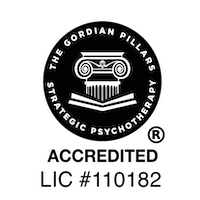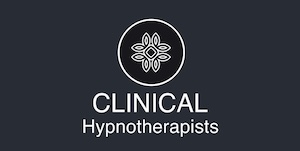Beat Anxiety
& Stress
Solution-Focused Approach to Overcoming Anxiety
Brief and effective treatment to restore control, calm and self-assurance in your life
Anxiety
Dealing with anxiety and stress is debilitating.
- You’re always on edge.
- Constantly feeling overwhelmed.
- And overthinking absolutely everything.
Anxiety isn’t just worrying; it’s like your body hits the panic button trying to get control, and suddenly, you’re stuck in overdrive, completely frozen by fear. You feel helpless, powerless and even paralysed.
Ultimately, anxiety and stress take a heavy toll,
making each day a relentless battle.

Is this you? Common signs and symptoms of Anxiety
You find yourself feeling out of control.
You overthink absolutely everything? Struggling to switch off and stuck in those “what if’s?”
You catastrophise? Imagine everything going wrong into the future.
You don’t manage uncertainty very well in your life – there’s the fear of the unknown, and your ability to cope with it.
You tell yourself limiting thoughts like; “I’m anxious.. I’m stressed.. my anxiety… or Anxiety runs in my family?..”
You tend to put things off, out of fear, or because you feel so stressed and overwhelmed?
You constantly carry worries with you, and are unable to set aside concerns, leaving you feeling weighed down.
Perhaps you even have panic attacks? Making you feel completely paralysed and powerless to do anything about it.
Ultimately anxiety can impact every part of your life – your relationships, your work and even how you see yourself. But this doesn’t have to stay this way. At The Inward Process, we know you don’t have an “anxious personality”, that you aren’t broken, nor do you need to “fix” yourself. Anxiety is a process, not an identity or life sentence, and it responds exceptionally well with the right approach.
At The Inward Process, I use strategic psychotherapy and clinical hypnotherapy to address the root causes of anxiety. This isn’t about quick fixes, temporary relief or simply telling you to breathe – this is about real change. Together, we’ll challenge unhelpful thought patterns, build practical strategies and rewire the unconscious process that keep anxiety going on autopilot.
You don’t have to carry this burden alone. Reach out today, for brief, yet effective, solution oriented treatment for anxiety and stress. Take the first step towards restoring control and building a more fulfilling life.
FREE 20 MINUTE CONSULT
We understand that taking the first step can feel daunting, which is why we’ve made it risk free for you. At The Inward Process, we offer a FREE 20-minute consult – by phone or Meets – so you can determine how this process works and decide if it’s right for you. There’s no pressure. No obligation. If at any point you feel during the call it’s not the right fit – we’ll simply stop. No questions asked and no cost to you. You’re reading this now, so why not click below and see where it takes you?
Hi, I'm Matthew
Your Local Strategic Psychotherapist and Clinical Hypnotherapist in Albury Wodonga
Hello, and welcome to The Inward Process, proudly serving Albury Wodonga and online. I’m Matthew Kovacevic, and I specialise in helping people overcome anxiety, social anxiety, panic attacks and performance related stress. Together, we’ll use strategic, tried, tested and proven methods to help you break free from anxiety and reclaim control.
Each session is uniquely designed to be all about you, recognising that your experiences with anxiety/stress and goals are specific to you. Our work will focus on equipping you with the tools and strategies to not only manage anxiety and stress – but overcome it – setting the foundation for long term growth and resilience.
Having personally faced and battled with anxiety – from performance and social anxiety to panic attacks throughout my teenage years and most of my adulthood. I get it and deeply understand the toll this takes. The strategic approaches and methods that have transformed my life, are now the same tools I use to guide others in breaking cycles of fear, overthinking, self-doubt and getting stuck in their own head.
I’ve supported clients from all walks of life – from young adults to seasoned professionals – helping them restore calmness, self-assurance and control in their life. If you’re ready to invest in a process that’s as unique as you are, I’m here to help you make that happen.






How do we address Anxiety?
The good news is, that anxiety is treatable, because at The Inward Process, we recognise anxiety isn’t something that just happens to you, nor does it suddenly happen to you – although it may feel that way. Anxiety isn’t an identity or something external you can “catch” like Covid. Nor can I, or anyone, email or text you anxiety and stress. Instead, anxiety is a process – a series of steps that you unconsciously run. It is therefore a verb. Something you do, rather than a noun or physical thing like your smartphone or chair.
To generate anxiety, you must think and feel in a certain way, and engage in specific physical responses. Our minds with the best of intentions looks to the future, scanning for potential problems and trying to prepare us for what “could” happen. What the possibilities and outcomes “could” be. Unfortunately, as humans we are wired to focus on negative possibilities. We don’t like uncertainty and we try make sense of the unknown by overthinking, relying on feelings as indicators of truth, and spinning “what if”? scenarios in our minds. This process causes us to get stuck in our own head and generates the fight/flight/freeze. This triggers a sense of impending danger or helplessness, accompanied by physical sensations like tightness in the chest, a racing heartbeat, and a type of sick feeling in the stomach. These unconscious patterns keep you stuck in a cycle of worry, making anxiety feel overwhelming and unmanageable.
The key is understanding that anxiety and stress, like any learned action, behaviour, or emotion, is a process, and therefore it can be unlearned. Managed and overcome. While everyone runs anxiety patterns with a slight difference, the overall process is very much largely the same, that is both, predictable, and well documented. This is what we target at The Inward Process. Of course your story is important, but we don’t need to revisit your whole life story, or for you to retell me your entire childhood. In other words, we will focus on the how, not the why. Your unchangeable past and what has happened in the past doesn’t have to define who you are today.
At The Inward Process, I don’t just help you manage anxiety – I help you overcome it. Using strategic approaches and methods that are tried, tested and proven, we’ll uncover the strengths and resources you already have that you may not yet realise, teach you key skills like compartmentalisation, so that you can set aside worries/concerns. We’ll also challenge unhelpful thoughts and feelings – replacing them with tools and resources that empower you to choose your own response.
What we offer

Personalised sessions to overcome anxiety and stress
Every session is tailored to you, helping you to understand what anxiety/stress actually is, and its root causes. Most importantly, not just manage – but overcome anxiety and stress effectively.

Break free from the cycle of anxiety and reclaim control
You will learn how to break free from the common patterns of anxiety/stress that keep you stuck like overthinking, avoidance and the fear of uncertainty, so that you can reclaim control.

Develop lifelong skills and tools for lasting change
Learn practical, empowering skills and tools, to build resilience, regulate your emotions and face uncertainty with clarity and poise. These lifelong skills will empower you to create meaningful, lasting change in your life.
FREE Individual Recordings
Directly to Your Phone
Good therapy teaches you to operate differently in the world. We give you a range of resources to help discover a new way of being
Discover What is Possible
Frequently Asked Questions
Not sure yet? Here are the answers to some common questions
Anxiety refers to intense, excessive and persistent future focused thinking that magnifies fears, uncertainties and worries, where individuals anticipate negative outcomes in the future.
Often, anxiety is described as the fear of the unknown, or focusing on what could go wrong. Stemming from a range of cognitive and behavioural habits that interact to create this heightened state of stress and worry.
In strategic psychotherapy, we approach anxiety as a series of steps or processes rather than a standalone “thing”, or identity like when people say “my anxiety”. Rather than something that happens to you, anxiety is something that gets unconsciously generated by the way you interpret, anticipate and react to life’s challenges.
In summary, anxiety is a process of thoughts and behaviours that one can learn to identify and address. By understanding and re-evaluating these mental patterns, it’s possible to break the cycle of anxiety, reclaim control and improve the overall quality of your life.
Signs and symptoms of anxiety include constant worry, overthinking, racing thoughts, difficulty concentrating, restlessness, physical tension, and trouble sleeping—often stemming from internal thought processes rather than external threats/circumstances.
An anxiety attack, or panic attack, is a sudden onset of intense fear and physical symptoms. Your mind and body react to perceived future dangers, triggering intense physical sensations like a rapid heartbeat, shortness of breath, and overwhelming fear. It is extremely debilitating – where you actually panic in an attempt to gain control and take action, but now that gets out of control.
In today’s fast-paced world, we’re flooded with vast amounts of information and so much going on, which enables future uncertainties – that can fuel anxious thought patterns.
- Rising costs of living.
- Competing demands and expectations from family & friends.
- And the endless number of responsibilities we have to deal with.
As a result, many people feel tired, overwhelmed and anxious.
Despite the ever-present nature of stress, we’re never taught how to manage it. Making anxiety a widespread issue. It’s the real pandemic of our time.
Over 2 million Australians experience anxiety every day, and this number is only expected to rise.
Anxiety drains your energy because the fight, or flight response is generated. The mind is constantly running a process of worrying, anticipating, and trying to control outcomes that haven’t happened yet, leaving little room for rest or recovery.
Jay Haley, first termed “strategic psychotherapy”, which led to the strategic approach. He was highly regarded and influential in the development of strategic family therapy, and brief therapy models.
Key focuses on strategic psychotherapy for anxiety are:
Solution-oriented: Strategic psychotherapy begins with defining clear outcomes for what the client wants to achieve. The focus remains on these outcomes throughout the session.
Focus on Patterns: There is a strong emphasis on underlying patterns that lead to anxiety, throughout the interviewing and clinical hypnotherapy process. It prioritises identifying swift, practical solutions to overcoming anxiety and stress, rather than delving deeply into past experiences, a person’s life story, or unconscious motivations.
Directives & Tasks: Rather than just talk, therapists use specific tasks, directives and other interventions to change behaviour patterns and create shifts in the system in relation to anxiety & stress.
Change Creates Change: The strategic approach posits that even small changes in behaviour can set off a cascade of positive shifts within the individual as a whole.
- A 20 minute discovery session, followed by the completion of the client intake form.
- A strategic interview lasting about 30-35 minutes (the initial interview around 45-60 minutes to identify the client’s desired outcomes, strengths, resources, underlying patterns, processes and what is contributing to the presenting issue).
- A 15 minute hypnotic session.
- A 5-10 minute debrief, overview and moving forward.
Strategic psychotherapy is a therapeutic approach that helps individuals understand and manage their emotions, thoughts and behaviours. Through one-on-one sessions with a trained psychotherapist, clients can explore their concerns, gain insights, develop effective coping strategies and reclaim control. This is different from other forms of psychotherapy, as it focuses on the patterns, choices and perceptual filters that clients have developed throughout their life. In showing clients, how to change these patterns and perceptual filters, an individual can make more effective choices and the possibility of change becomes a reality.
Social anxiety is the fear of judgment or embarrassment in social situations. It often comes from imagining worst-case scenarios like saying the wrong thing, being criticized, or appearing awkward. This fear can make everyday interactions—like meeting new people, attending events, or even making a phone call—feel overwhelming.
From the perspective of The Inward Process, social anxiety ties into:
- External Locus of Control: Feeling as though others’ opinions control your self-worth.
- Negative Expectancy: Anticipating negative outcomes in social settings, like possible rejection or looking like an idiot.
- Overanalysis and Avoidance: Dwelling on potential social mishaps or avoiding interactions altogether.
Social anxiety is the fear of judgment or rejection in social situations, where the unknown reactions of others feel overwhelming. At its core, it’s a fear of being seen, misunderstood, or criticised in ways that reinforce our own deep-seated insecurities. This fear can make situations like meeting new people, attending events, or even casual conversations feel confronting and dreadful.
From the perspective of The Inward Process, social anxiety is fuelled by several factors:
Intolerance for Ambiguity: People are unpredictable, and their responses represent the unknown. This uncertainty can feel threatening, as we don’t know if others will approve, reject, or misunderstand us. Instead of viewing this ambiguity as neutral, those with social anxiety project negativity onto it, assuming rejection is more likely than acceptance.
Fear of Judgment: Social anxiety often amplifies the belief that others will confirm our deepest fears about ourselves—whether it’s feeling inadequate, awkward, or unworthy. These fears are imagined but feel real, driving the anxiety.
Negative Expectancy: Instead of imagining positive or even neutral outcomes, social anxiety leads to a habit of anticipating criticism or failure. It’s the belief that conversations will go poorly, people won’t like you, or you’ll embarrass yourself.
Overanalysis and Avoidance: Socially anxious individuals may replay past interactions, dissecting every word or action for mistakes, or overthink upcoming events in an attempt to “prepare.” Ironically, this focus on “what ifs” often leads to avoidance of social settings altogether, reinforcing the cycle of anxiety and isolation.
Social anxiety is less about what others think and more about how you imagine they’ll respond, often based on fears you already hold about yourself. Overcoming it involves learning to tolerate ambiguity, challenge negative expectations, and practice engaging in social situations with curiosity rather than fear. This helps reframe interactions as opportunities for connection and growth, rather than threats to your self-worth.
Firstly, clinical hypnosis, or clinical hypnotherapy, isn’t about mind control, or unlike stage hypnosis seen in entertainment, or movies. Clinical hypnotherapy is instead, a therapeutic tool that is used to guide individuals into a deeply relaxed and focused state. This state (also likened to a trance state) helps quieten the busy, analytical mind and anxious thought patterns. When you have your eyes closed, fewer parts of the brain are engaged in processing visual information/stimuli, which helps free up mental resources to focus and respond more fully to the therapist’s guidance, and the specific presenting issues at hand.
The brain can better access personal resources and strengths that might be blocked by excessive overthinking and self-criticism. or to simplify, it’s better to look at clinical hypnosis as a process of quieting the mind to be able to focus on specific issues in the moment. With a skilled and accredited clinical hypnotherapist, it becomes a way to focus attention, offering a pivot point that helps create thought patterns and develop responses to overcome anxiety/stress, that ultimately better serve the individuals goals/highest good.
I get asked this quite a lot and the short answer is. Yes! But please read on if you wish to have more information and be more informed. Numerous empirical studies, professional association bodies and renowned experts support this. When performed by a trained and qualified professional, hypnosis is absolutely safe, and is a naturally occurring state of mind. It is a non-invasive and drug free method.
Robust, empirical research dating way back, for example (Lynn et al., 1990), demonstrated through a meta-analysis (across 18 studies), that hypnosis was effective in reducing anxiety, and was particularly helpful when combined with other forms of psychological, talk-based therapy interventions. Another recent example, includes a comprehensive meta-analysis (Barnes et al., 2019), suggests hypnotherapy, indicates the effectiveness and benefits of hypnotherapy for addictions/dependencies, including smoking.
In a clinical sense, hypnosis is a tool that focuses on amplifying people’s strengths. The presupposition of hypnosis begins that the client has inward resources, capacities, skills, and abilities that are present but are not yet been utilised, abilities and skills that can be developed over time, and/or can be used in an effective deliberate manner to overcome issues and problems. Again, you cannot be “under the spell” or “mind control” of the clinical hypnotherapist, and you come out of trance at any time, easily and effortlessly.
Yes, clinical hypnotherapy can be highly effective in alleviating anxiety and stress. By addressing the root causes of these issues at the subconscious level, hypnotherapy can help individuals develop healthier coping mechanisms and experience a greater sense of calm and control.
Yes, clinical hypnotherapy has been shown to be highly effective in reducing anxiety for many individuals. Research has demonstrated that clinical hypnotherapy can help lower anxiety symptoms, improve overall quality of life, and provide individuals with greater control over their thoughts and emotions, helping them manage anxiety more effectively.
During a hypnotherapy session, clients are guided into a state of deep relaxation and focus (i.e., trance state) where they can explore and address the unconscious processes that contribute to anxiety (i.e., the behaviours and patterns we do on autopilot). Here’s an overview of what to expect:
- Initial interview, goal setting and expectations
We begin the collaborative session with an interview, between the client and the therapist. Where goals/expectations are clarified and immediate concerns are addressed. The clinical therapists then asks specific strategic questions to both understand and uncover what is going on for you, as well as address the component parts of anxiety that is unique to the individual.
- Hypnotherapy session
After the interview, we then move forward into the ~15 minute hypnotherapy session. The clinical hypnotherapist guides the client to a deeply, relaxed focused state (trance state), making it easier to work directly with the unconscious mind. Once in a trance state, the clinical therapist introduces suggestions aimed at breaking the unhelpful thought patterns, like constant overthinking and worrying into the future. Hypnotherapy also will help uncover the limiting beliefs, and responses that drive anxiety, helping to establish a sense of control and resilience.
- Post Session Reflection and Reinforcement:
After the hypnotic induction, clients return to a fully alert state, and we begin to discuss the hypnotherapy session, as well as assign follow up tasks to reinforce the insights, learnings and calm responses developed during the hypnosis. You also receive a voice recording of the hypnotherapy session, so that you can reinforce the learning and insights outside of our session times.
Yes, sessions are recorded and provided to clients for addressing anxiety and stress. It’s recommended to listen to the recording daily between sessions to reinforce the work done during the sessions. That way you can reinforce your learning, deepen your understanding of the strategic themes, as well as build the skills, tools and strategies. Repetition is the mother of all skill after all. You’ll also receive small tasking, and educational material to complete between sessions, in order to further support your growth and progress outside of the sessions.
Yes, if you do not wish to have face to face sessions, then we offer online Telehealth services via Google Meets, or Zoom if requested.
All that is required from you, is to have a stable internet connection, a comfortable seated position and headphones for the clinical hypnosis, along with an environment where you won’t be interrupted by anything.
Yes, we offer in-person sessions at our locations in Albury Wodonga, as well as telehealth sessions for individuals who prefer the convenience of online therapy. Our goal is to make our services accessible and convenient for all.
For anxiety, the first session typically lasts up to 90 minutes, as it includes a comprehensive strategic interview to understand the presenting issue as well as provide psychoeducation, followed by a clinical hypnotherapy session, and a post-session discussion with tasking. Subsequent sessions are usually 60 minutes long, continuing the therapeutic work and assigning tasks to help maintain progress.
Insurance coverage for therapy depends on your specific health fund and level of coverage. Some providers may offer rebates for hypnotherapy and psychotherapy, while others may not. It’s best to check directly with your insurer to see if your plan covers these services.
